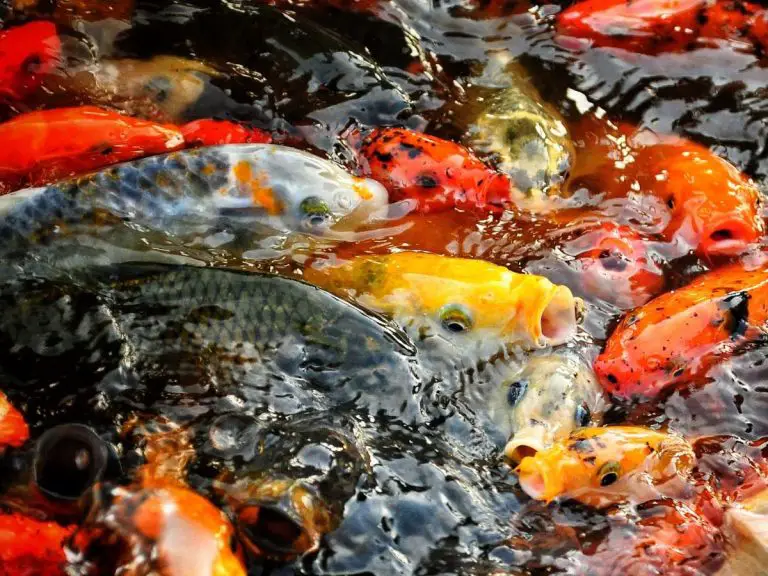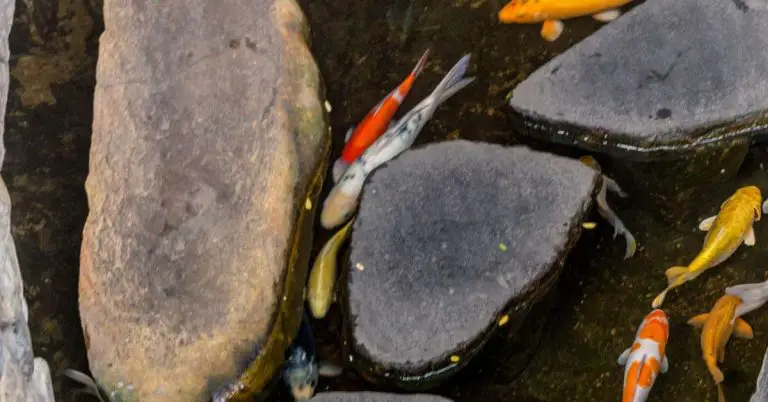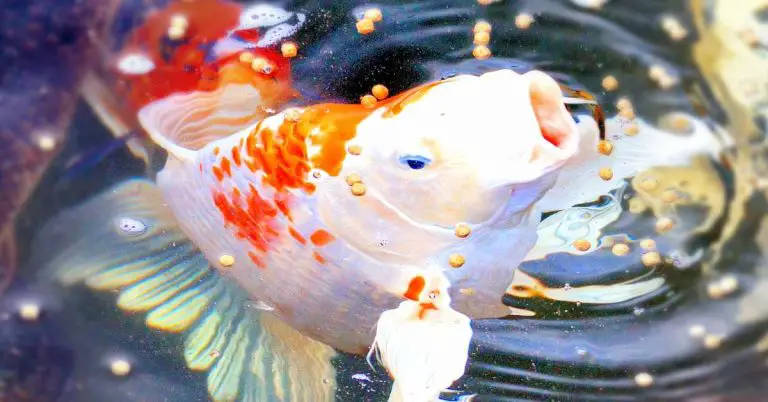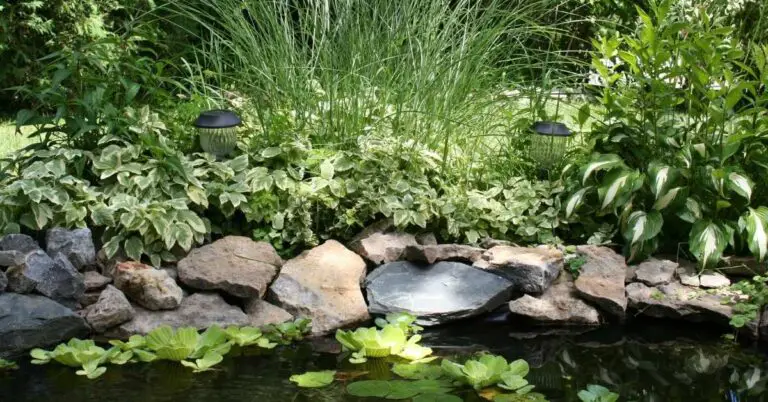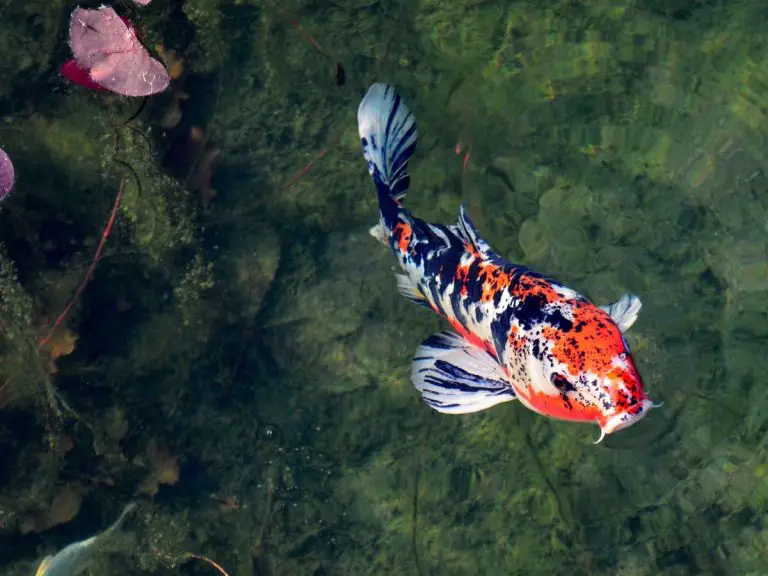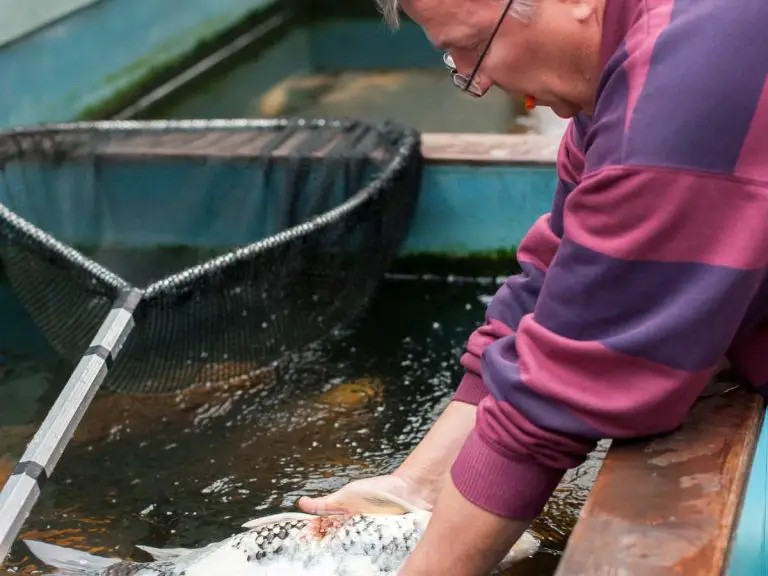Comprehensive Koi Stress Treatment Guide: Effective Strategies to Keep Your Fish Happy
Are your koi fish feeling stressed out? Don’t worry, we’ve got you covered with a comprehensive koi stress treatment guide!
If you’re a koi fish owner or thinking about becoming one, it’s important to understand how stress can affect these beautiful creatures and what you can do to help them. Stress in koi fish can lead to various health issues, but with the right knowledge and techniques, you can alleviate their stress and maintain their well-being.
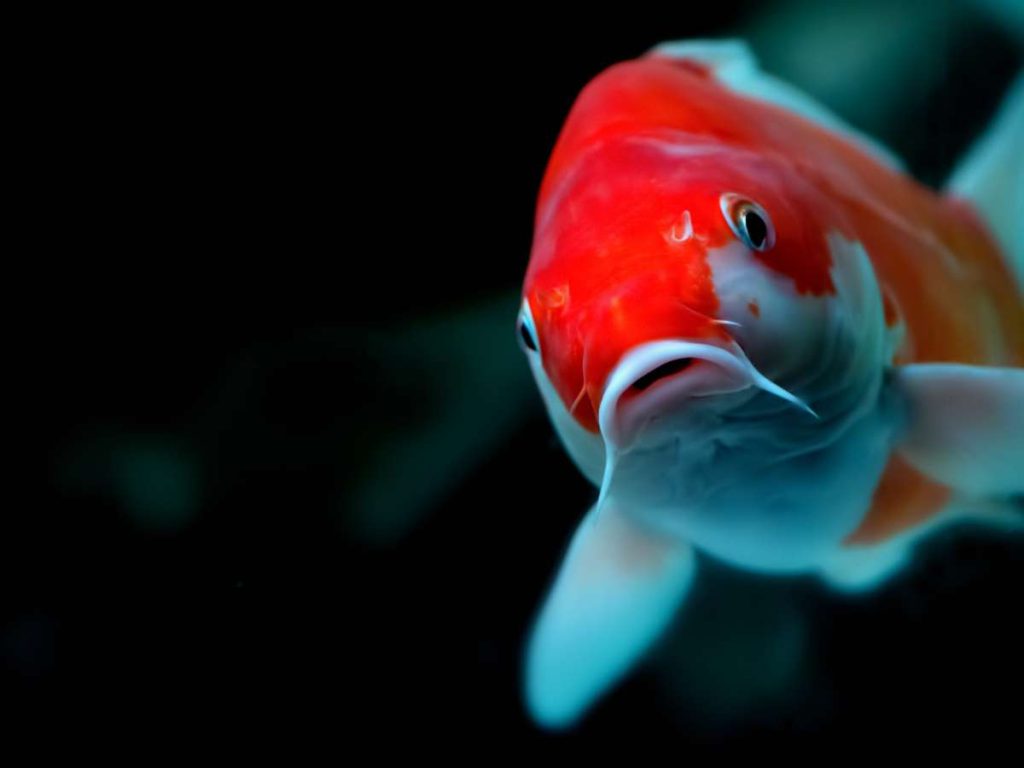
So, how do you treat stress in koi fish? Our guide will provide you with all the information you need to know, from maintaining proper water quality to creating a suitable environment, implementing a proper diet, and utilizing the right stress relief techniques. We’ll also share tips on preventing stress in koi fish in the first place.
Keep reading to discover the best practices and strategies that will keep your koi fish swimming happily. Get ready to be the ultimate koi fish caretaker!
Stress in koi fish
Stress in koi fish can be caused by various factors and can have harmful effects on their health. It’s important to be able to identify signs of stress in your koi fish so that you can take appropriate actions to address the issue. Some common signs of stress in koi fish include:
- Loss of appetite
- Erratic swimming patterns
- Lethargy and lack of energy
- Visible sores or lesions on the body
- Breathing difficulties
If you notice any of these symptoms or general changes in the behavior of your koi fish, it’s crucial to take immediate action to reduce their stress levels.
Common causes of stress for koi fish
So what causes stress in koi fish in the first place? Some common causes of stress in koi fish include:
- Poor water quality
- Inadequate pond design and maintenance
- Inappropriate diet and nutrition
- Incompatible tankmates
Poor water quality is often the leading cause of stress in koi fish. When the water is contaminated with high levels of ammonia, nitrite, or other harmful substances, it can severely impact the health of your koi fish.
Additionally, improper pond design and maintenance can also cause stress, as inadequate filtration and insufficient oxygen levels can create an unhealthy environment for the fish. So it’s essential to ensure that your pond is properly designed and maintained to minimize stress levels.
Next up, a poor diet that lacks essential nutrients can weaken the immune system of koi fish, making them more susceptible to stress-related illnesses.
And finally, placing incompatible tankmates with your koi fish can cause territorial conflicts and increased stress levels.
We’ll cover how to fix all these koi stressors step by step below – keep reading!
Signs and symptoms of stressed koi fish
It’s crucial to be able to recognize the signs of stress in your koi fish. Loss of appetite is a common symptom, so if you notice that your koi fish are not eating as much as usual, it could be a sign of stress. Additionally, if you observe your koi fish exhibiting erratic swimming patterns or appearing lethargic, it’s a clear indication that they are under stress. Keep a close eye on your fish and look out for any visible sores or lesions on their bodies (making sure they’re not koi flukes, for example). These could be caused by stress-induced illnesses.
Lastly, breathing difficulties, such as gasping for air at the water surface, should be taken seriously as they can indicate severe stress on the fish’s respiratory system.
How stress impacts the health of koi fish
Fish are just like people, in that stress is not good for them!
Stress can have detrimental effects on the health and well-being of koi fish. When fish are under stress, their immune system becomes compromised, making them more susceptible to diseases and infections.
This weakened immune system can also slow down the healing process, making it harder for the fish to recover from any injuries or illnesses.
Additionally, stressed koi fish may experience stunted growth and reduced reproductive capabilities, limiting their overall vitality and survival.
Ultimately, it’s crucial to address stress in koi fish promptly to ensure their long-term health and happiness. We’ll explore how to do that in the following sections.
1. Prevent koi stress by maintaining proper water quality
Proper water quality is crucial for reducing stress in koi fish. When it comes to their habitat, clean water is key. Poor water quality can lead to numerous health issues and increased stress levels in your koi. So, let’s dive in and explore some factors that can affect water quality in your koi pond.
First and foremost, clean water is critical for stress-free koi.
Imagine living in a dirty and polluted environment. It would certainly make you feel stressed and uncomfortable. The same goes for koi fish. Clean water is essential for their overall well-being and stress reduction. It provides them with a safe and healthy environment to thrive in.
As you likely already know, several factors can affect the water quality in your koi pond. These include ammonia, nitrate, pH levels, and dissolved oxygen.
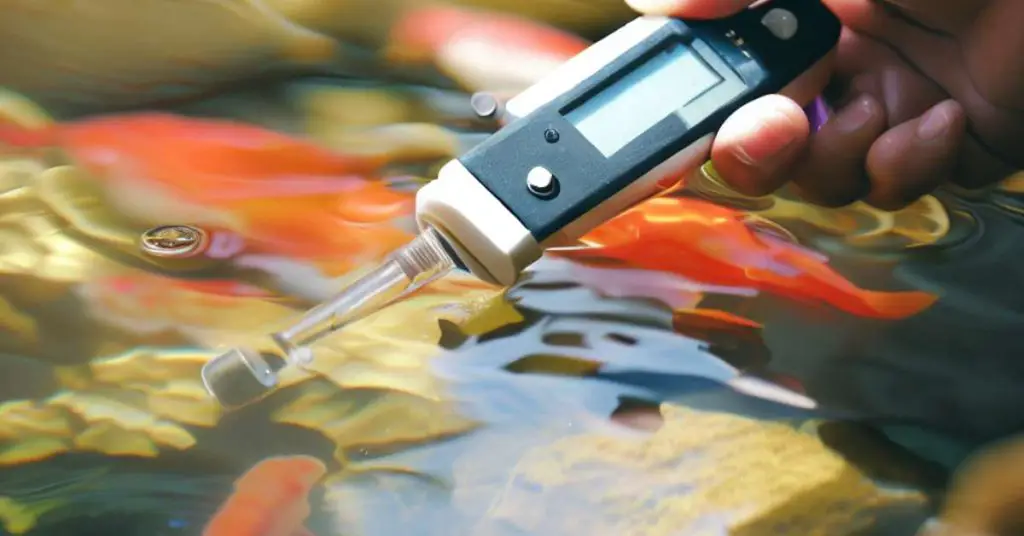
Specifically, ammonia, a toxic compound, can accumulate from fish waste and uneaten food. Nitrate, another harmful compound, can build up from excess fish waste and decaying organic matter. pH levels indicate the acidity or alkalinity of the water, and it is crucial to maintain a stable range to ensure your koi’s well-being. And lastly, sufficient dissolved oxygen levels are vital for koi fish as they rely on oxygen through the water to breathe.
Water testing and treatment methods
Regular water testing is essential to ensure proper water quality in your koi pond. This will help you monitor the levels of ammonia, nitrate, pH, and dissolved oxygen. Here is a list of essential water parameters and their desired ranges:
- Ammonia: 0 ppm (parts per million)
- Nitrate: Below 40 ppm
- pH: 7 to 8
- Dissolved oxygen: 6 to 8 ppm
Once you have tested the water and identified any imbalances, you can utilize various water treatment methods. Here is a reference table of common water treatments and their uses:
| Treatment | Use |
|---|---|
| Water conditioner | Removes chlorine and chloramines |
| Nitrifying bacteria | Helps establish beneficial bacteria colonies for nitrogen cycle |
| pH buffer | Stabilizes and adjusts pH levels |
| Oxygen supplements | Increases dissolved oxygen levels |
By maintaining proper water quality through regular testing and utilizing effective water treatments, you can significantly reduce stress levels in your koi fish and create a healthy and thriving environment for them.
2. Prevent stress by providing a suitable environment for koi fish
A stress-free pond is crucial for the overall well-being of your koi fish, so you need to important to design and maintain an environment that meets their specific needs and promotes their health.
When it comes to designing your koi pond, there are a few key elements to keep in mind. First, make sure the pond is of sufficient size to accommodate the number of koi fish you plan to have. Overcrowding can lead to stress and poor water quality, so it’s best to provide ample space for your fish to swim and explore.
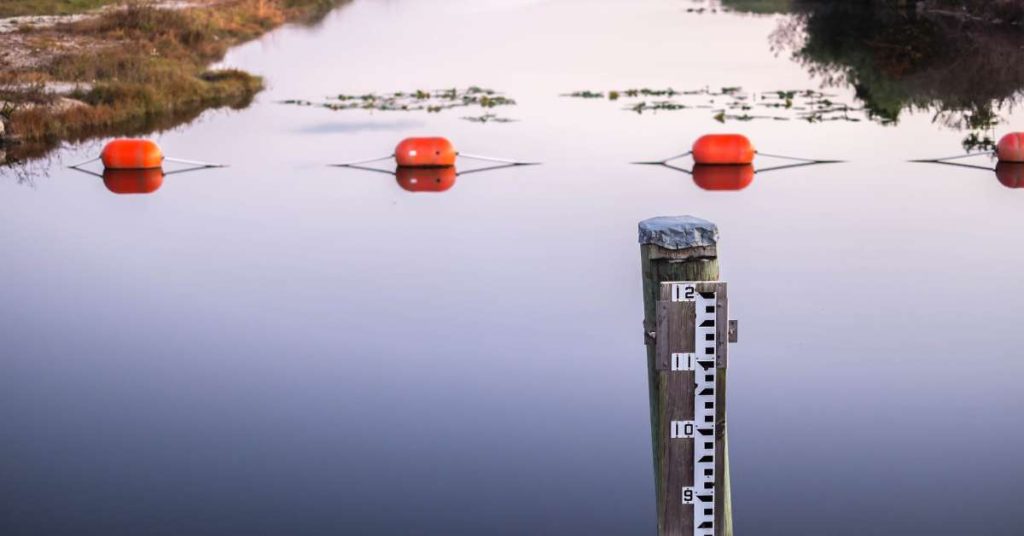
Next, consider the depth of your pond. Koi fish prefer deeper water, as it provides them with more room to dive and play. Aim for a depth of at least 3 feet to ensure optimal conditions for your fish.
And of course, regular cleaning is essential. Remove any debris, such as leaves or fallen branches, from the surface of the water to prevent them from decaying and affecting water quality. You should also regularly check and clean your pond filter to ensure proper filtration and circulation.
More factors to consider for happy koi fish habitat
When it comes to creating the ideal habitat for your koi fish, there are several specific factors to keep in mind. Water temperature is one of the most important. Koi fish thrive in temperatures between 68 and 77 degrees Fahrenheit, so it’s crucial to monitor and maintain the water temperature within this range.
Water quality is another critical factor. Keep an eye on pH levels, as koi fish prefer slightly alkaline water with a pH between 7.0 and 8.0. Ammonia and nitrite levels should also be kept at zero, as they can be harmful to your fish’s health.
In addition to water temperature and quality, it’s important to provide adequate shade for your koi fish. Direct sunlight can cause stress and overheating, so adding plants or a shade cover to your pond can provide much-needed relief from the sun’s rays.
Reference table of recommended pond equipment and accessories
| Equipment/Accessory | Description |
|---|---|
| Filtration system | A good filtration system is essential for maintaining optimal water quality in your koi pond. It helps remove debris, toxins, and excess nutrients. |
| Air pump | An air pump provides essential oxygenation for your koi fish, ensuring they have enough oxygen to breathe in the pond. |
| Pond heater or chiller | A pond heater or chiller helps regulate the water temperature, ensuring it stays within the ideal range for your koi fish. |
| Pond cover or netting | A pond cover or netting can help prevent predators, such as birds or raccoons, from disturbing your koi fish and potentially causing stress or harm. |
3. Prevent stress with the right diet
Feeding your koi fish with the right diet is crucial for their health and well-being. Just like humans, koi fish need a balanced diet to thrive. Understanding their nutritional needs and following best feeding practices will ensure that your koi fish stay stress-free and in optimal condition.
Essentially, koi fish have specific dietary requirements that must be met to keep them healthy. Their diet should consist of a mix of proteins, carbohydrates, vitamins, and minerals. Proteins are essential for growth and muscle development, while carbohydrates provide energy. Vitamins and minerals support various bodily functions, including immune system health.
Feeding guidelines and best practices for koi
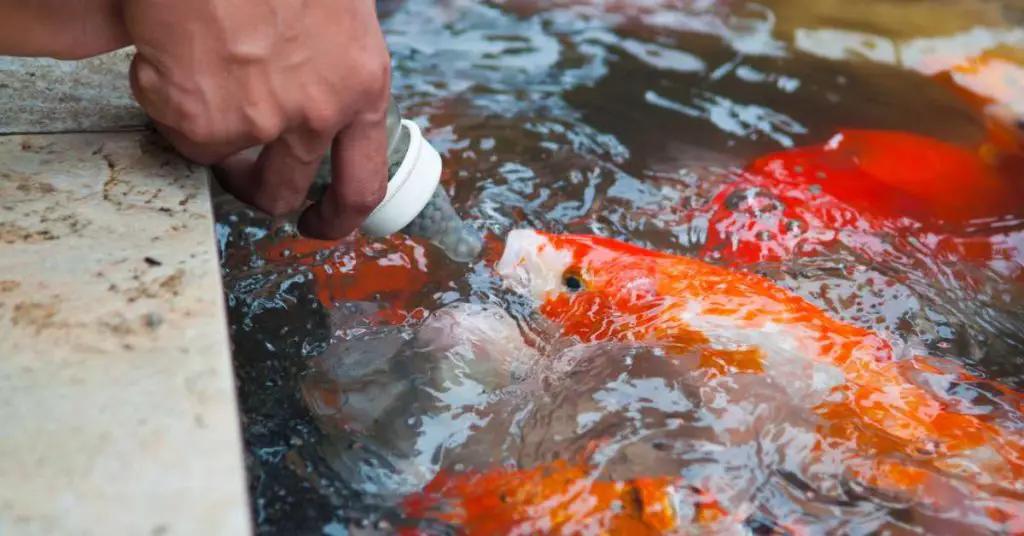
When it comes to feeding your koi fish, it’s important to follow some guidelines and best practices. Overfeeding can lead to digestive issues and poor water quality, while underfeeding can result in malnourished fish.
That’s why it’s recommended to feed your koi fish small, frequent meals throughout the day rather than a large portion at once. This mimics their natural feeding habits and allows them to digest their food more efficiently.
Monitor your fish during feeding to ensure that they are consuming all the food provided. If there is excess food left uneaten, it can contribute to water pollution and attract pests.
And adjust the amount of food based on the appetite of your koi fish and the water temperature, noting that during colder months, their metabolism slows down, so they require less food.
Recommended koi fish foods and their nutritional contents
| Food | Nutritional Contents |
|---|---|
| Pellets | Proteins, carbohydrates, vitamins, minerals |
| Flakes | Proteins, carbohydrates, vitamins, minerals |
| Live or frozen foods | Proteins, vitamins |
| Vegetables (lettuce, peas, spinach) | Vitamins, minerals, fiber |
Finally, always choose high-quality fish foods that provide a balanced nutritional profile. Pellets and flakes specifically formulated for koi fish are readily available in the market and are a convenient option.
Live or frozen foods like brine shrimp or bloodworms can also be given as treats occasionally to add variety to their diet and provide additional protein.
3 Techniques for stress relief
Let’s assume your koi are already stressed. How can you calm them down?
When it comes to relieving stress in your beloved koi fish, there are several techniques you can implement to ensure their well-being. Here are three effective ways to reduce stress in your aquatic friends.
1. Behavioral modifications for stress reduction
One of the simplest ways to help your koi fish relax is by making some behavioral modifications. For instance, consider creating a calm and peaceful atmosphere around their pond. You can do this by minimizing loud noises, avoiding sudden movements, and providing plenty of hiding spots and shaded areas.
In addition, keeping a consistent feeding routine can help alleviate stress in your fish. Try to feed them at the same time each day, as they thrive on routine and will feel more secure knowing their meals are predictable.
2. Importance of acclimation and quarantine procedures
Proper acclimation and quarantine procedures play a vital role in stress relief for koi fish. When introducing new fish to an existing pond, it’s crucial to acclimate them slowly to prevent shock or stress. This can be done by floating the new fish in a plastic bag on the water’s surface for about 15-20 minutes to allow them to adjust to the water temperature. Then, gradually introduce them to the pond by slowly adding small amounts of pond water to the bag every 10-15 minutes.
Quarantine procedures are also essential to prevent the spread of diseases and reduce stress in your koi fish population. Before introducing any new fish to your pond, it’s recommended to keep them in a separate quarantine tank for a few weeks. This will allow you to monitor their health and ensure they are free from any potential illnesses that could harm your existing fish.
3. Introduction to stress-relieving medications and treatments
In some cases, stress in koi fish may require the use of medications or treatments to provide relief. There are several options available to address stress-related health issues. Here is a reference table of common medications and their uses:
| Medication | Use |
|---|---|
| Medication A | Reduces stress-related inflammation |
| Medication B | Helps with bacterial infections caused by stress |
| Medication C | Improves overall immune system function |
Before using any medications or treatments, it’s essential to consult with a veterinarian or aquatic specialist to ensure you are choosing the right option for your koi fish.
Through behavioral modifications, proper acclimation and quarantine procedures, and the use of stress-relieving medications and treatments when necessary, you can help your koi fish lead a healthier and more stress-free life. Remember to always prioritize their well-being and provide them with the care they deserve.
Preventing stress in koi fish
Last but definitely not least when it comes to keeping your koi fish happy and stress-free, prevention is key. By implementing a few simple best practices, you can create an environment that minimizes stress and promotes optimal health for your beloved koi.
First, one of the most important things you can do to prevent stress in your koi fish is to maintain stable water conditions. Fluctuations in water quality can cause immense stress and lead to a weakened immune system. Regularly test your pond water for essential parameters such as pH, ammonia, nitrite, and nitrate levels, and take necessary steps to keep them within the desired ranges.
In addition to water quality, proper nutrition is essential in preventing stress. Providing a well-balanced diet that meets the nutritional needs of your koi fish will ensure their vitality and resilience. Be sure to feed them high-quality koi fish foods that are specifically formulated to support their health.
Second, avoid overcrowding your pond, which can lead to increased competition for resources and territorial disputes, causing stress among your koi fish. A general rule of thumb is to have no more than one inch of koi per square foot of pond surface.
It’s also important to provide adequate hiding places and shade in your pond. These features will give your koi fish a sense of security and help alleviate stress by giving them a place to retreat when they feel threatened. Incorporate rocks, plants, or even purpose-built shelters into your pond design to create these safe spaces for your koi.
Finally, regular maintenance and care routines are crucial in preventing stress and maintaining a healthy environment for your koi fish. Perform regular water changes to keep water quality in check, remove debris and excess organic matter, and maintain proper filtration systems to ensure optimal water conditions.
Inspect your pond regularly for any signs of disease or parasites. Early detection and treatment can significantly reduce stress and prevent further health complications. Implement a quarantine procedure for new additions to your koi collection to minimize the chance of introducing pathogens into your pond.
In conclusion, preventing stress in your koi fish is an ongoing effort that requires attention to detail and a proactive approach. By implementing best practices, maintaining a stress-free environment, and adhering to regular maintenance and care routines, you can create an environment that promotes the well-being and longevity of your koi fish.
Happy Koi Are Healthy Koi
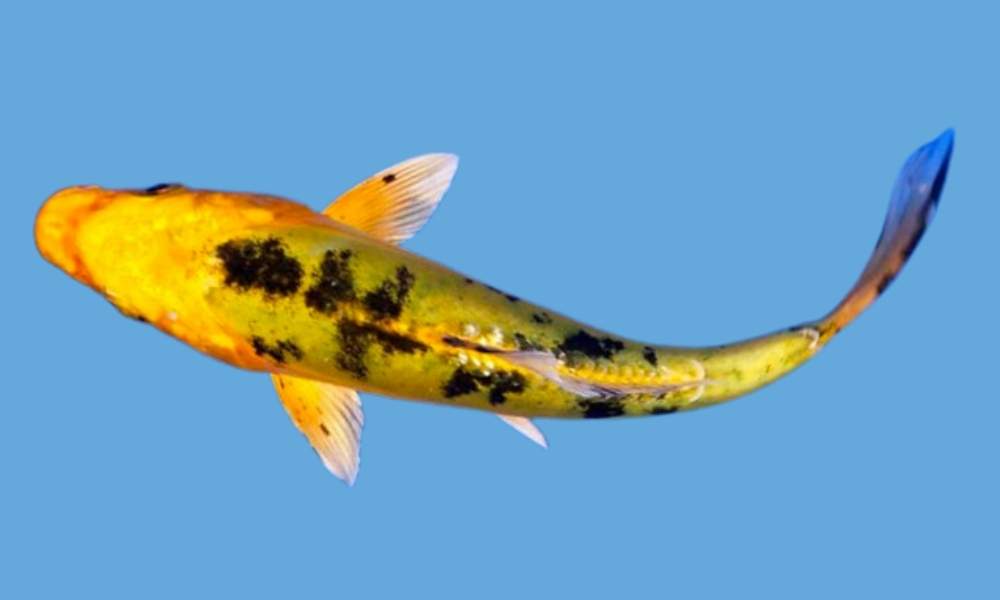
Alright, my fellow backyard pond enthusiasts, we’ve covered a lot of ground in this article on how to treat stress in koi fish. So, let’s do a quick recap of the main points we discussed:
- The causes of stress in koi fish
- The signs and symptoms of stressed koi fish
- The importance of maintaining proper water quality
- Factors that affect water quality and how to test and treat it
- The significance of providing a suitable environment for koi fish
- Factors to consider in designing and maintaining a stress-free pond
- The nutritional needs of koi fish and feeding guidelines
- Techniques for stress relief, including behavioral modifications and medication
- Best practices for preventing stress in koi fish through regular maintenance and care
Now that we’ve covered all these important aspects, it’s time for you to put this knowledge into action. Take the stress treatment guide we’ve provided and apply it to your own koi fish. Remember, a stress-free and happy koi is a healthy koi.
So, go ahead and make sure your pond has clean and well-maintained water, create a suitable environment for your fish, feed them a balanced diet, and implement stress relief techniques when needed. By doing so, you’ll be providing the best possible care for your beloved koi fish.
Happy pondkeeping and may your koi swim stress-free!
Related Questions:
What are some natural ways to reduce stress in koi fish?
Some natural ways to reduce stress in koi fish include providing a calm and stable environment, maintaining proper water quality, and ensuring a balanced and nutritious diet. Additionally, incorporating stress-relieving techniques such as adding hiding spots and plants in the pond can also help reduce stress in koi fish.
Can stress in koi fish be contagious to other fish in the pond?
In certain cases, stress in koi fish can be contagious and can affect other fish in the pond. Fish communicate through chemical signals released into the water, and when a fish becomes stressed, it can release stress hormones that may affect other fish. This is why it is important to promptly address stress in koi fish to prevent it from spreading throughout the pond.

